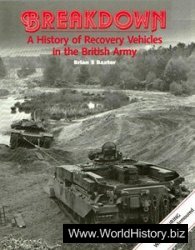Among the principal actors in Russia’s reemergence as a country stripped of much of its long-time empire was Boris Yeltsin, the leader of the Russian legislature and soon to become its first president. Yeltsin co-signed the Belavezh agreement of December 1991 with Leonid Kravchuk of Ukraine and Stanislav Shushkevich of Belarus, the agreement that did away with the Soviet Union. Other prominent figures shaping the post-Soviet future of Russia early on were Acting Prime Minister Yegor Gaidar, Foreign Minister Andrei Kozyrev, and the architect of the privatization schemes that transferred most lucrative industrial assets into the hands of new entrepreneurs, Anatoly Chubais. All of these politicians are now considerably discredited in the eyes of most Russians, and only Chubais retains a high-power position as head of Russia’s state electric grid monopoly.
By 1993, the political division within the Russian legislature between the allied forces of communists and ethnic Russian nationalists, on the one hand, and the Westernizing liberals, on the other, became so bitter that it was resolved only through an armed standoff, he Westernizing block won, but it now looks like
Boris Yeltsin
The first democratically elected president of Russia (1991-1999), Boris Yeltsin was formerly a regional Communist Party boss. He quit the party in 1990. In December 1991, together with the leaders of Ukraine and Belarus, Yeltsin co-signed the Belovezh agreement, which did away with the Soviet Union and created the Commonwealth of Independent States in its place. As president of an independent Russia, Yeltsin moved to end state control of the economy and privatize most enterprises. However, economic difficulties and political opposition, particularly from the Supreme Soviet, slowed his program and forced compromises. In 1993, Yeltsin suspended the parliament and called for new elections. When the parliament's supporters resorted to arms, they were crushed by the army. In foreign affairs, Yeltsin greatly improved relations with the West and signed the START II nuclear disarmament treaty (1993) with the United States. In 1994, Yeltsin sent forces into Chechnya to suppress a separatist rebellion, forcing Russia into a difficult and unpopular struggle. In 1996, Yeltsin ran for reelection against a number of other candidates and won the first round, garnering 35 percent of the vote to Communist Gennady Zyuganov's 32 percent; Yeltsin then won the runoff election. In the late 1990s, however, a series of economic crises, frequent cabinet reshufflings, and his own deteriorating health cast doubt on his ability to rule; charges of corruption in his family and among members of his inner circle also became prominent. In 1999, Yeltsin survived an impeachment attempt spearheaded by the Communist opposition. A second invasion of Chechnya (1999), prompted by a Chechen invasion of Dagestan and related terrorist bombings in Russia, proved popular with many Russians, and pro-government parties did well in the 1999 parliamentary elections. On December 31, 1999, the long-ailing Yeltsin suddenly announced his resignation; Prime Minister Vladimir Putin succeeded him as acting president.
NATIONS AND NATIONALISM: VOLUME 4 (1989-PRESENT)

NATIONS AND NATIONALISM: VOLUME 4 (1989-PRESENT)
That victory will be its last for quite some time. he pendulum then began to swing in the opposite direction: toward ethnic nationalism of the Eurasian (as opposed to Westernizing) brand and profound disillusionment with the West. he ensuing steep economic decline of 1991-1998, privatization and the development of crony capitalism, loss of a sense of economic security by many, and a far-reaching social stratification discredited the Westernizing vision in the eyes of many Russians, as did the country’s loss of superpower status. Nevertheless, the new geopolitical reality of a Russia separated from the rest of its former empire had been irrevocably established. “he new delimitation happened quickly and without deep relection or real debate” (O’Loughlin and Talbot 2005, 26).




 World History
World History









